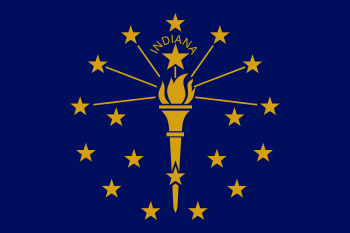Norman Eddy

Norman Eddy (December 10, 1810 in Scipio, New York – January 28, 1872 in Indianapolis, Indiana) was an American politician and military officer.
Trained as a doctor at the University of Pennsylvania School of Medicine, earning an M.D. in 1835,[1] Eddy moved to Mishawaka, Indiana after graduation in 1835. There, he practiced medicine until 1847, when he changed his focus to law, passing the bar and moving to South Bend, Indiana. His efforts shifted again three years later, when he commenced a political career in the Democratic Party with a post in the Indiana State Senate. After holding that position and several other local offices, he was elected to the 33rd Congress, defeating Schuyler Colfax. Eddy served only one term in this office, as he was in turn defeated by Colfax when he attempted to run for re-election. Undaunted, Eddy continued his political career as Attorney General of the Territory of Minnesota, serving as an appointee of President Franklin Pierce in 1855.
The outbreak of the American Civil War marked a new phase of Eddy's life, as he organized the 48th Indiana Infantry and received a commission as its colonel. Eddy served in this capacity for two years, but received disabling wounds in Mississippi at the Battle of Iuka and left the service in July 1863. Despite the wounds, he was fortunate, as 119 of his 420 men were killed or wounded in the engagement.
After the close of his military career, Eddy was Indiana's collector of internal revenue from 1865 to 1870, and then its Secretary of State of Indiana from 1870 to 1872, before dying suddenly as a result of a heart condition on January 28 of that year. An Episcopalian, Eddy was buried in City Cemetery.
References
External links
| United States House of Representatives | ||
|---|---|---|
| Preceded by Graham N. Fitch |
Member of the U.S. House of Representatives from Indiana's 9th congressional district 1853–1855 |
Succeeded by Schuyler Colfax |
| Political offices | ||
| Preceded by Max F. A. Hoffman |
Secretary of State of Indiana 1871–1872 |
Succeeded by William W. Curry |

